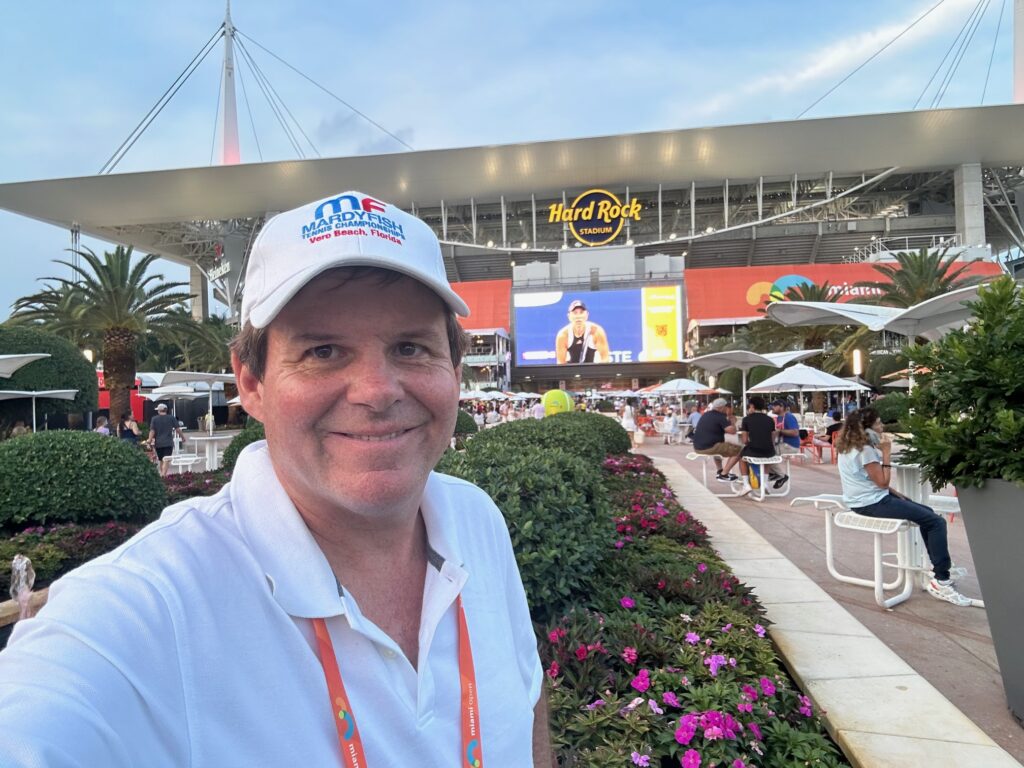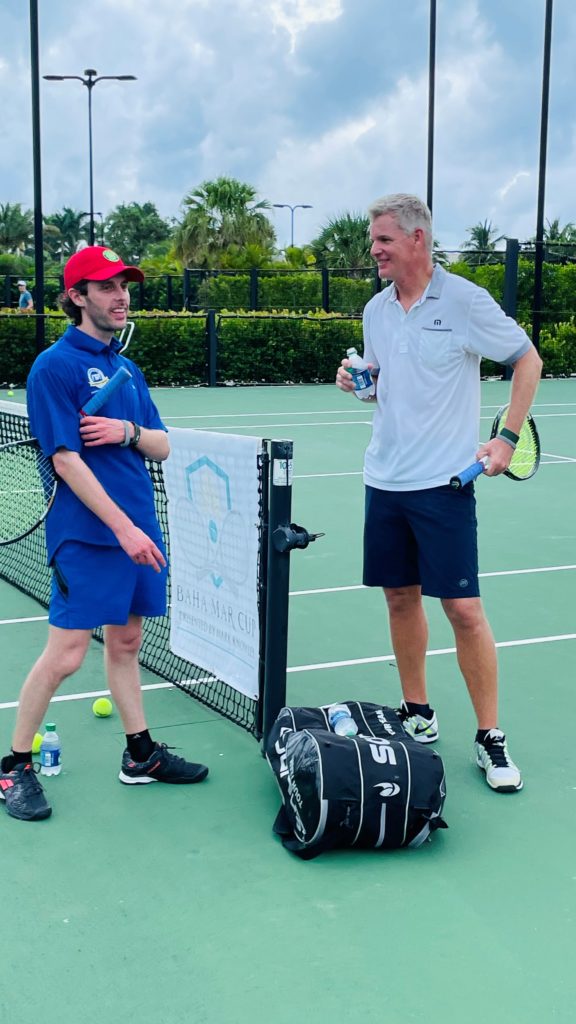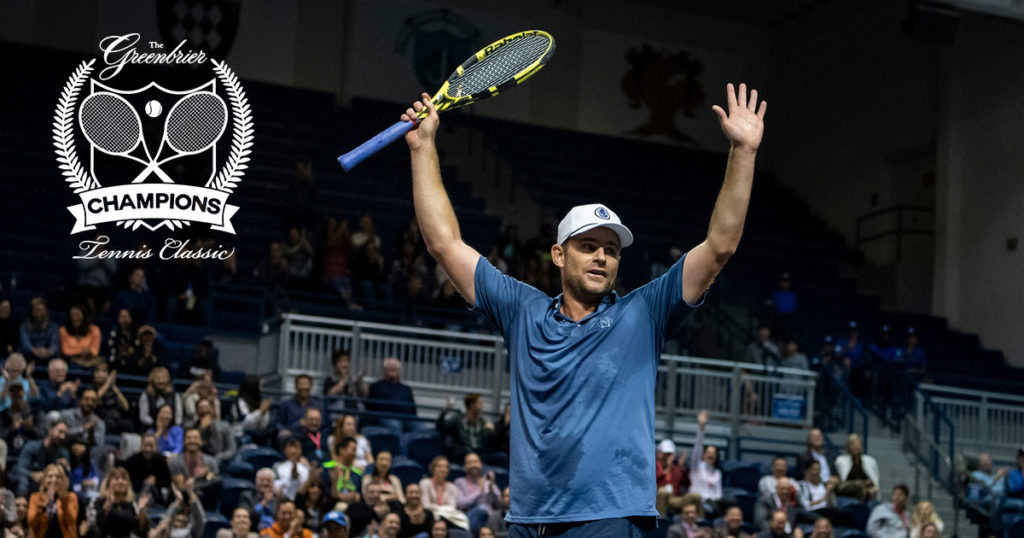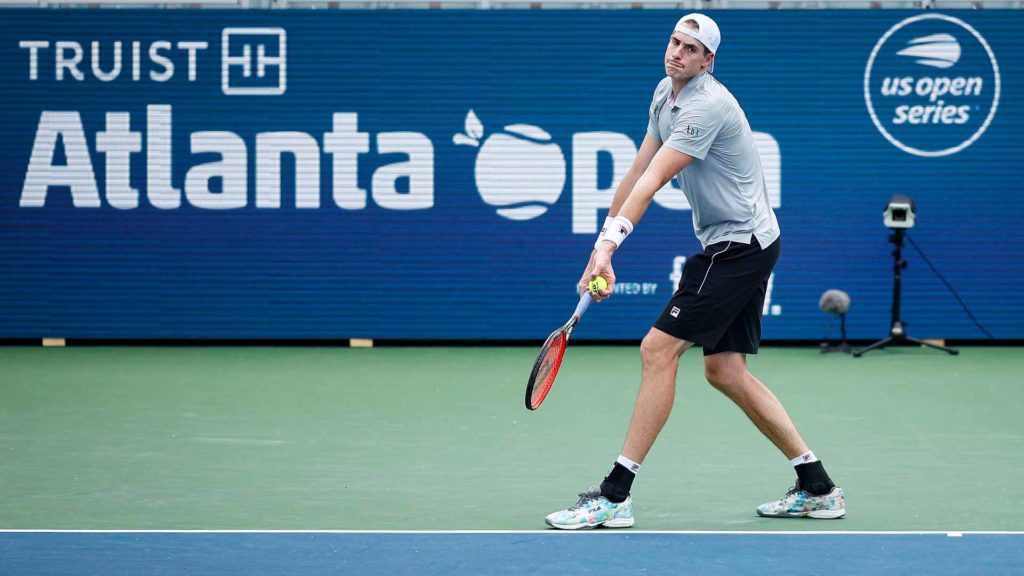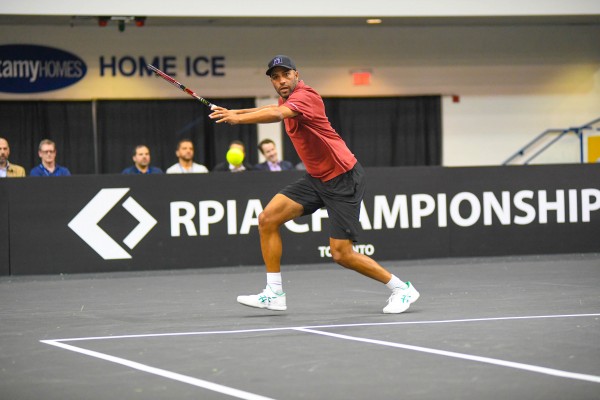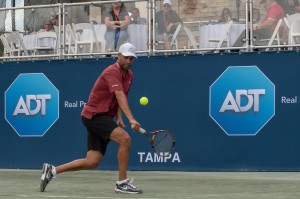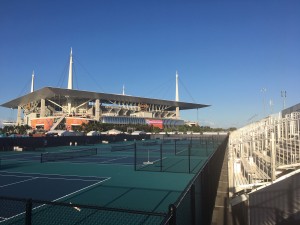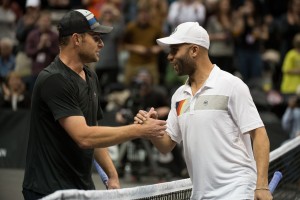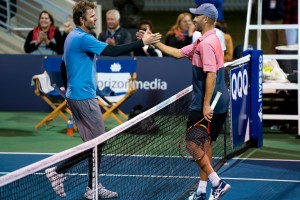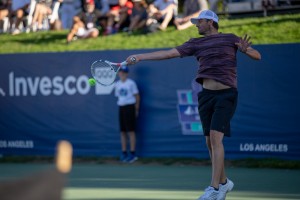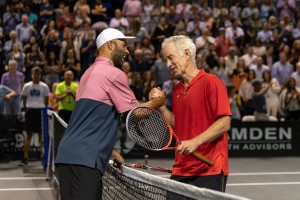By Randy Walker
@TennisPublisher
One of the most prestigious and historic titles in tennis is the NCAA men’s singles championship. The title of the champion in collegiate tennis dates back to 1883. Many college tennis observers delineate different “eras” in college tennis, namely when a team tournament format was instituted in 1977 and before that when only a singles and doubles tournament was held to determine a team champion. It’s not unlike delineating from the “Open Era” of pro tennis in 1968 and amateur era that preceded it. So, below, I present the greatest NCAA men’s singles finals in the “Team Tournament Era.”
1978 John McEnroe (Stanford) def. John Sadri (NC State) 7-6, 7-6, 5-7, 7-6
This match is considered the greatest college tennis match ever played and among the greatest matches period ever played. Played for four hours and 13 minutes in front of capacity crowd of about 5,000 fans at the University of Georgia in Athens, Georgia, McEnroe, the 1977 Wimbledon semifinalist and a freshman at Stanford, claimed the singles championship by winning the best-of-five set championship match by winning three sets in tiebreakers. McEnroe actually won only one more point (144-143) and one more game (26-25) than Sadri in the titanic tilt. To boot, McEnroe won each tiebreaker 5-4, on sudden-death points at 4-4, simultaneous set points for both players. The match is immortalized in this video, narrated by the one and only Bud Collins here: https://www.youtube.com/watch?v=vZ3cVebBkQw
McEnroe, of course, went on to become one of the greatest players of all time winning four U.S. Open singles titles and three Wimbledon titles as well as 77 singles titles and 78 doubles titles. Sadri also went on to a stellar career achieving a career-high ranking of No. 14 that included two ATP single titles and runner-up finish at the Australian Open in 1979, losing to Guillermo Vilas.
2007 Somdev Devvarman (Virginia) def. John Isner (Georgia) 7-6(7), 4-6, 7-6(2)
If you are going to beat the nearly seven foot tall big serving Isner in a match, you sometimes may have to do it without breaking his serve, which is exactly what Somdev Devvarman of Virginia did by winning two tiebeakers in his 7-6 (7), 4-6, 7-6(2) win over the Georgia senior. Isner, playing in front of a capacity crowd on his home court in Athens, Georgia, had just led his team to a perfect 32-0 season, capped with the NCAA team title, but was not able to also claim the individual title. Neither the No. 2-seeded Devvarman or the top-seeded Isner hit a double fault in the match and Isner slammed 22 aces in the final. “I definitely served well in the breakers,” said Devvarman, who hit his fifth ace of the match on match point. “I took advantage of the first serves he missed in the tiebreaker.” Said Isner, “I knew this match would be a coin flip. I thought I played exceptionally well. We both played high-quality tennis.” The win for Devvarman, a junior from Chennai, India, was the first NCAA singles tennis title for the University of Virginia. He lost in the NCAA singles final the year before, falling to UCLA’s Benjamin Kohlloeffel 6-1, 6-4. The following year, Devvarman repeated as champion defeating Tennessee’s J.P. Smith 6-3, 6-2 in the final.
Devvarman went on to a decent career as a professional, earning a career-high ranking of No. 62 and representing India in Davis Cup and the Olympic Games. Isner had a storied pro career winning 16 singles titles, earning a career-high ranking of No. 8, reaching the Wimbledon semifinals in 2018 and representing the United States in Davis Cup and at the Olympics. He is perhaps best known for his 11 hour and five minute win over Nicolas Mahut at Wimbledon in 2010 that concluded with a 70-68-fifth set.
1999 Jeff Morrison (Florida) def. James Blake (Harvard) 7-6(2), 2-6, 6-4
Top-seed James Blake of Harvard faced No. 2 seed Jeff Morrison of Florida in Athens, Georgia in an NCAA final between sophomores that went down to the wire. Morrison broke Blake’s serve at love in the final game to claim the NCAA title with a 7-6(2), 2-6, 6-4 victory. Blake was attempting to become the first player from Harvard to win the national collegiate singles title since George Caner in 1916. Morrison was able to overcome his serving woes, connecting on only 44 percent of his first serves, to defeat Blake ”I felt I was just hanging on with my serving today,” Morrison said. ”That is not a fun thing to do at this level. At least I was attacking him off the baseline.”
Blake went on to one of the best pro careers of any college player, reaching a career-high ranking of No. 4 and winning 10 singles titles and helping the U.S. win the Davis Cup in 2007. Morrison reached a career high of No. 85 in the world and had a memorable Centre Court at Wimbledon win over future No. 1 Juan Carlos Ferrero en route to a third round finish at the All England Club.
Ethan Quinn (Georgia) def. Ondrej Styler (Michigan) 6-7(2), 7-6(5), 6-2
In the greatest comeback in the history of the NCAA singles final, Georgia’s Ethan Quinn came back from down quadruple match point to defeat Ondrej Styler of Michigan at the U.S. Tennis Association National Campus in Orlando, Florida. Quinn was one point from losing the final four times when Styler served at 5-4, 40-0, meaning Styler had four straight match points including the sudden-death deuce point that is used in college tennis. Quinn fought through each opportunity, capped with a forehand mishit from Styler. Quinn, from Fresno, Calif., was able to fight to win the second-set tiebreaker and play aggressive tennis in the third set to prevail and win Georgia’s fifth NCAA singles championship. “I was as close as I could possibly have been to winning this match,” said Styler, a senior from the Czech Republic. Quinn, a redshirt freshman, joined UCLA’s Jimmy Connors (1971), Stanford’s John McEnroe (1978), USC’s Cecil Mamiit (1996) and Mississippi’s Devin Britton (2009).
Quinn turned professional weeks later and Styler stopped playing competitive tennis went into a career in finance as an Investment Banking Analyst at Credit Suisse in New York City.


